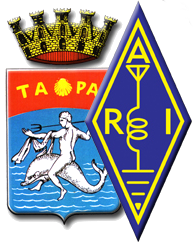
RULE - AWARD RELEASE - ARI TARANTO SCORE
Paisiello was born in Taranto and educated by the Jesuits there. He became known for his beautiful singing voice and in 1754 was sent to the Conservatorio di S. Onofrio at Naples, where he studied under Francesco Durante, and eventually became assistant master. For the theatre of the Conservatorio, which he left in 1763, he wrote some intermezzi, one of which attracted so much notice that he was invited to write two operas, La Pupilla and Il Mondo al Rovescio, for Bologna, and a third, Il Marchese di Tidipano, for Rome.
His reputation now firmly established, he settled for some years at Naples, where, despite the popularity of Niccolò Piccinni, Domenico Cimarosa and Pietro Guglielmi, of whose triumphs he was bitterly jealous, he produced a series of highly successful operas, one of which, L'ldolo cinese, made a deep impression upon the Neapolitan public.
Paisiello was primarily an opera composer. His instrumental works are therefore imbued with a similar vocally conceived melodic line, granted they may be lacking in the sophisticated counterpoint and motivic work of Haydn and Mozart's music. This characterization, however, does not do justice to the extreme drama and topical contrast in all his works such as the Piano Concerto No. 4 in G minor. (CD Naxos 8.557031. Francesco Nicolosi, Piano, Collegium Philarmonicum Chamber Orchestra - Gennaro Cappabianca, Conductor.) Essentially he had mastered all the techniques which made for good opera, and this made his works widely popular and admired throughout Europe.

